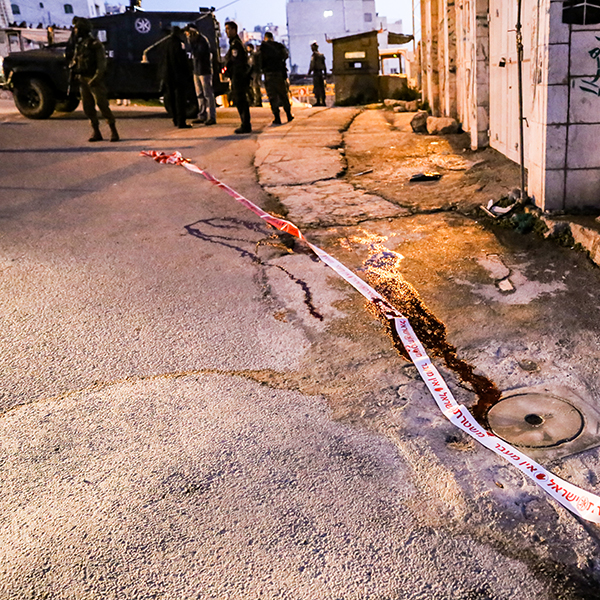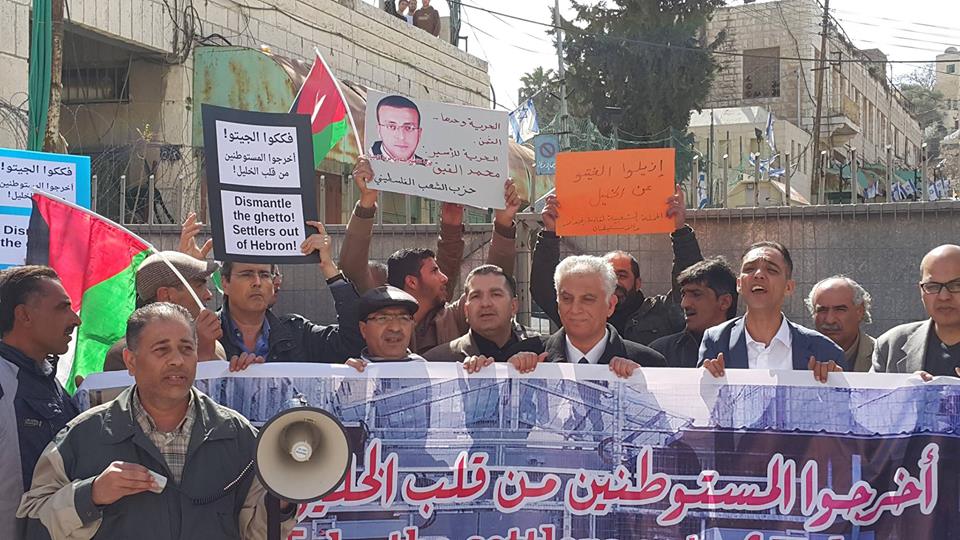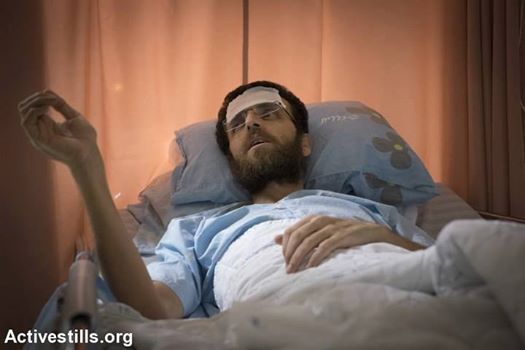Tag: Arrests
-
Children face fear and threat of violence after young woman shot in Hebron
22nd February 2016 | International Solidarity Movement, al-Khalil team | Hebron, occupied Palestine A day after 21-year old Yasmin al-Zarou was gunned down by Israeli forces when passing the Salaymeh checkpoint, many of the children were forced to walk right past where she had layn on the ground bleeding – where her blood is still…
-
Israeli forces use excessive violence on peaceful demonstration in Hebron
20th February 2016 | International Solidarity Movement, al-Khalil team | Hebron, occupied Palestine On 20th February 2016, the Hebron Defence Committee, the Human Rights Defenders Group and other popular struggle committees organised a demonstration under the motto ‘Dismantle the Ghetto, take the settlers out of Hebron’ in occupied al-Khalil (Hebron). Israeli forces attacked the peaceful…
-
Call for Action: Save Mohammed al-Qiq
18th February 2016 | International Solidarity Movement| occupied Palestine 33-year-old journalist, Mohammed al-Qiq, is on hunger strike since November 25 2015, in protest against his imprisonment without charges or trial in Administrative Detention by Israel. Al-Qiq’s health has deteriorated to the point of facing imminent death. His wife Journalist Fayha Shalash is calling on journalists…



